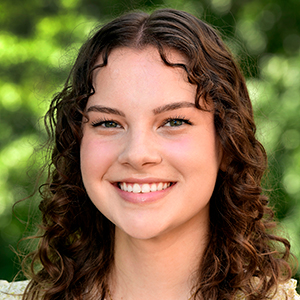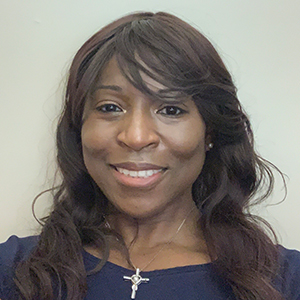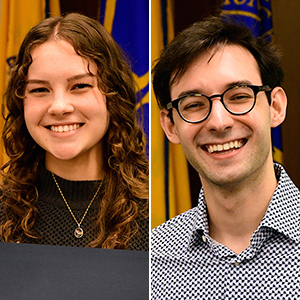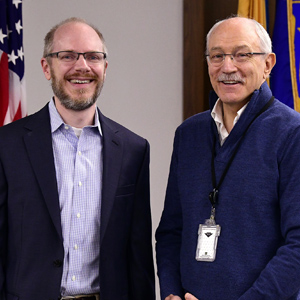On May 13, the NIEHS Office of Science Education and Diversity (OSED) welcomed Caroline Goon, who discussed her efforts related to recruitment, retention, and advancement of Asian Americans, Native Hawaiians, and Pacific Islanders (AANHPIs) across the National Institutes of Health (NIH).
Goon, principal strategist for the AANHPI portfolio in the NIH Office of Equity, Diversity, and Inclusion (EDI), presented “Growing Pains: The Journey to Being My Authentic Self” as part of the NIEHS Diversity Speaker Series.
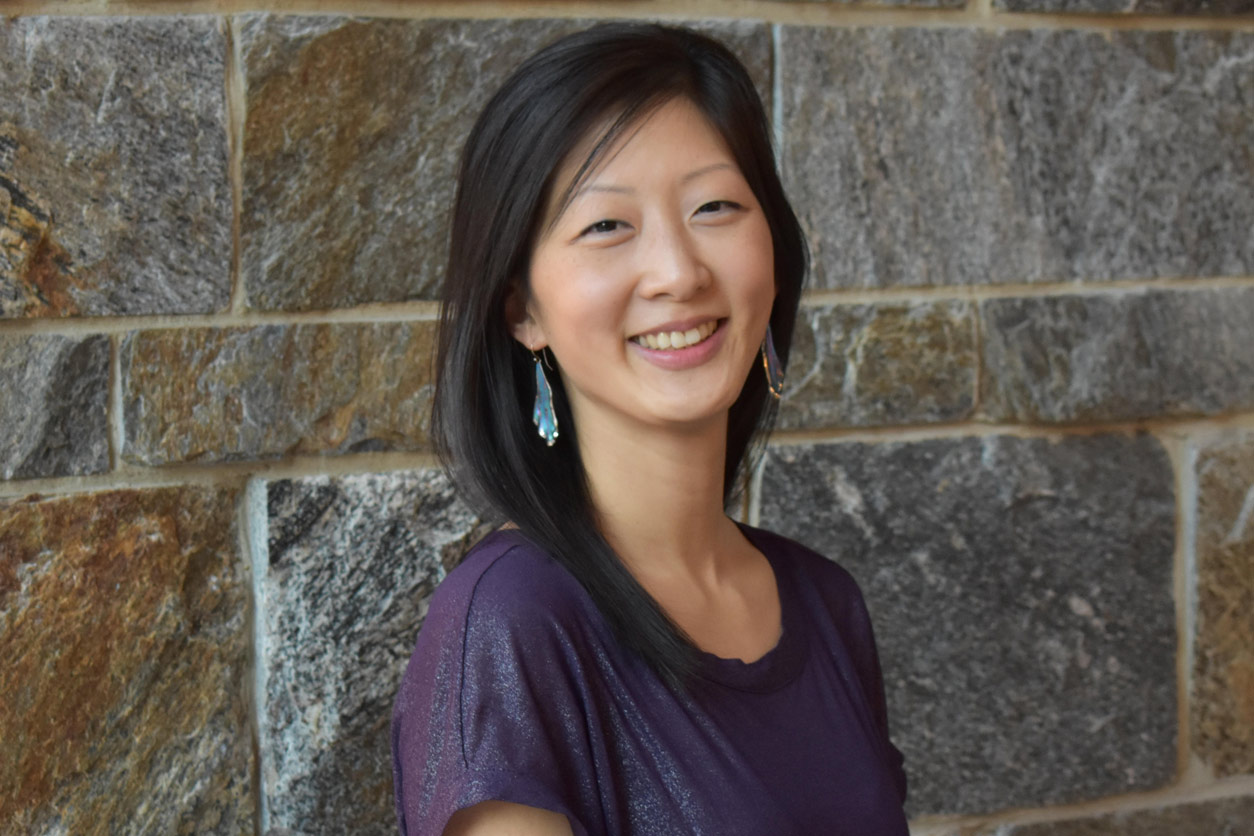 “My role as a strategist is to work with colleagues inside and outside of NIH to identify, address, and develop sustainable solutions for the AANHPI community,” Goon said. (Photo courtesy of Caroline Goon)
“My role as a strategist is to work with colleagues inside and outside of NIH to identify, address, and develop sustainable solutions for the AANHPI community,” Goon said. (Photo courtesy of Caroline Goon)Empowering the AANHPI community
Since starting her position in 2020, Goon has partnered with employee resource groups to respond to the needs of the AANHPI population across the 27 NIH institutes and centers. She also has worked to engage the next generation of AANHPI leaders and address the issue of underrepresentation at senior leadership levels.
For example, Goon was instrumental in appointing T. Jake Liang, M.D., chief of the Liver Diseases Branch at the National Institute of Diabetes and Digestive and Kidney Diseases (NIDDK), as the new AANHPI engagement committee executive sponsor.
In addition, she has facilitated relationship-building efforts with the NIH AANHPI Employee Resource Group. Goon also participates in an interagency AANHPI White House initiative where team members share resources on how to cultivate a beneficial workplace environment. These groups and others deal with a variety of topics, but lately they have discussed ways to be responsive to disturbing news reports involving violence against AANHPIs.
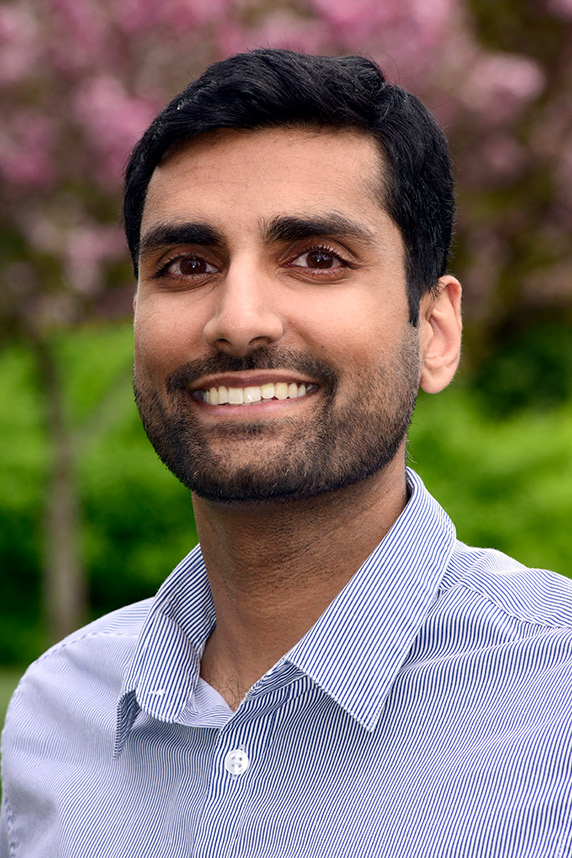 Before joining NIEHS, Mehta was a health scientist and Presidential Management Fellow in the Office of Children’s Health Protection’s Regulatory Support and Science Policy Division at the U.S. Environmental Protection Agency. (Photo courtesy of Steve McCaw / NIEHS)
Before joining NIEHS, Mehta was a health scientist and Presidential Management Fellow in the Office of Children’s Health Protection’s Regulatory Support and Science Policy Division at the U.S. Environmental Protection Agency. (Photo courtesy of Steve McCaw / NIEHS)“We recognize that current events, such as increased incidents of anti-Asian hate crimes and attacks on the AANHPI community are shocking and sad reminders that there is still much work to do to end racism for all people,” Goon said.
Perpetual foreigner syndrome
Although Goon was born in the U.S., she said that she must constantly answer the question, “Where are you from?” Most of the time, she responds by saying, “My parents are from Taiwan, but I was born in the United States.”
Goon said Asians are often denied their identity as Americans. According to Goon, people sometimes are surprised that her English is so good or will yell out “ni hao,” the Mandarin word for hello.
Suril Mehta, Dr.P.H., a health scientist in the NIEHS Division of the National Toxicology Program, said he understands all too well Goon’s experiences with ethnic stereotypes. He is a South Asian of Indian-Gujarati descent who grew up in Texas.
'When I travel, I will usually be chosen for random screening at airport security,' Mehta said. 'Even walking around outside, people will assume I am a gas station worker or cab driver, or tell me to go back to my own country.'
Parris Milly, a multimedia specialist and contractor at NIEHS who attended the event, was born and raised in Nashville, Tennessee, and is half Chinese and half Laotian. Even though his parents spoke their native tongues at home occasionally, they stressed that English would be his first language. When his family moved to a new school district, however, his teachers placed him in an English as a second language class because of how he looked.
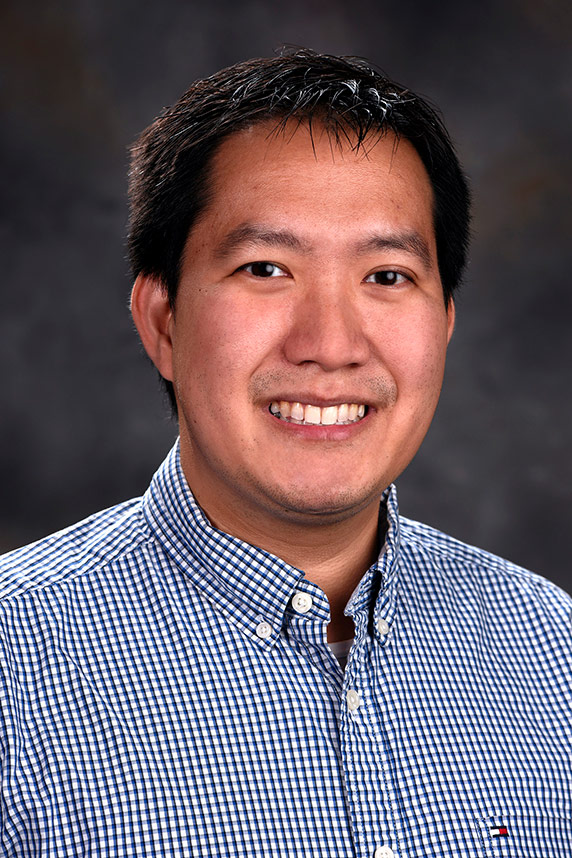 Milly appreciates his parents’ insistence that he pursue higher education and never forget his heritage. As a result, he can speak five languages: English, Mandarin, Japanese, Thai, and Lao. (Photo courtesy of Steve McCaw / NIEHS)
Milly appreciates his parents’ insistence that he pursue higher education and never forget his heritage. As a result, he can speak five languages: English, Mandarin, Japanese, Thai, and Lao. (Photo courtesy of Steve McCaw / NIEHS)'My parents had a meeting with the teachers, and I was placed back into regular English classes,' Milly said.
Lessons learned
Goon said her career has taught her several important lessons. The main two include the following.
- Ask for what you need to succeed.
- Get out of your comfort zone more often.
She also noted that everyone, regardless of race or ethnicity, needs to be more vocal when it comes to calling out big injustices, as well as poor attempts at humor at someone’s expense.
'It is our responsibility to speak up for our marginalized colleagues, friends, and family members,' Goon said. 'If we don’t, nothing will ever change.'






